All the ways I've reduced my waste over the past year
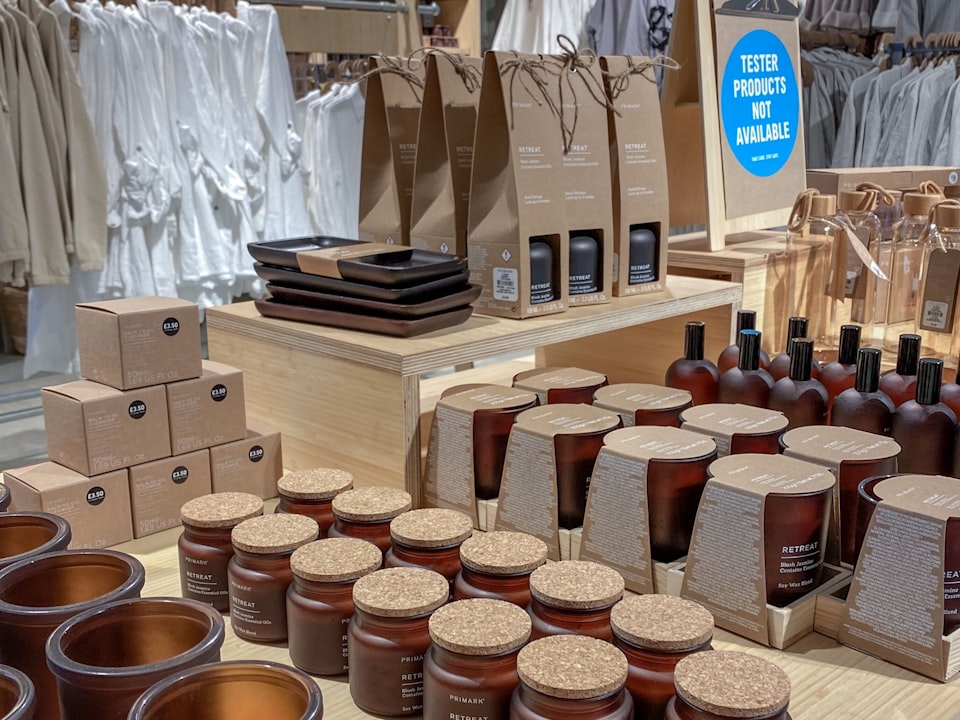
Almost a year ago today, I quit my job to pursue a career in combatting climate change. While I feel the work I've done has had a far-reaching and long-lasting impact, so have the personal choices I've made, particularly in the past 6 months.
When I first started pursuing a more environmentally friendly lifestyle, it was hard to know what choices I should make. What actually has an impact? What's greenwashing? Which brands are reputable? It's still hard today, however, there are many more options (both good and bad). If you're interested in navigating the world of lower waste, pollution, and cost, then maybe this can help. Here are all of the ways I've personally reduced my waste over the past year.

The Bathroom
Looking around a typical household bathroom, you'll see plastic everywhere. The easiest way to reduce waste is to stop buying products that come in plastic packaging, especially given that pretty much every piece of plastic ever made still exists.
- Toothpaste: I ditched tubes of Crest for toothpaste bits. These are small, solid spheres of toothpaste that come in a reusable glass bottle. You take one out, chew it up, and brush your teeth like normal with a wet toothbrush. They don't foam up quite as much as the tubed stuff does, but they do enough to still give yourself a satisfying brush. I use the charcoal bits from Bite and have no complaints. As an added bonus, solid toothpaste is more travel friendly since you don't have to worry about the TSA liquid allowance!
- Toothbrush: Along with the paste, I ditched my plastic toothbrush for a bamboo one. The same exact thing, made with more sustainable materials. I also use a bamboo brush from Bite, and I especially like it because it's two pieces and you only replace the top part with the bristles, reducing waste even more.
- Soap: In with the solid soap bars, out with the liquid soap in plastic bottles. I use Dr. Bronner's soap bars; really great soap in really great packaging. Plus, these are found everywhere.
- Deodorant: One more thing I get from Bite (I like them if you couldn't tell) is plastic-free deodorant. It comes in a metal casing you keep forever, and refills are sent in paper. It's also gentle on the skin and smells great. What else could you need?
- Cold showers: This one's simple, turn down the temperature on your shower (and reduce the length) to save water and energy. Sometimes I challenge myself to finish my shower within the length of a single song (tip: Bohemian Rhapsody is 6 minutes, Hey Jude is 7 minutes, and Stairway To Heaven is 8 minutes).

The Kitchen
Once we're ready for the day, we move into the kitchen and unlock a whole new world of sustainability.
- Microfiber towels: Yes, paper towels are the easiest option. You use them and lose them. But think about all the times you've done that over the course of your life. Replace 90% of those clean-ups with microfiber or dish towels and you're drastically reducing your waste. You can't go wrong, but there's a reason these have 42,000 positive reviews.
- Eating plant-based: This one is largely due to my roommate being vegetarian, yet by replacing meat with beans, lentils, tofu, impossible foods, and more meat alternatives, our home cooking has been tastier than ever before. I know firsthand that this can be intimidating, but you can get a headstart on 700 simple vegetarian recipes with this massive cookbook.
- Making it at home: I've done a whole series of 'No Waste Tastes' on Climativity, and plan to keep doing so. Homemade food items are tastier, healthier, friendlier to the Earth, and often cheaper. Some of my favorites are homemade peanut butter, hummus, almond milk, salad dressings, and the one I've made the most: granola.
- Food dehydrator: Hands down, my favorite thing I've adopted over the past year! Extra veggies and fruits stand no chance of going to waste when I pop them into the dehydrator instead. By sucking out the moisture, dehydrated produce can last for weeks or even months and are the perfect healthy snack. My favorite things to dehydrate are mangoes, bananas, tomatoes (a tip learned from my mom: add some Italian seasoning or chili powder to the top), onions, and grapes, but let your imagination run wild! I use this cheap option and it works perfectly. Even if you don't have a dehydrator, be like my dad and string up some fresh herbs and peppers to air dry, before grinding them later for homemade spices.
- Stock bin: Another one that my roommate championed is a Tupperware we keep in our freezer. As the week goes on, we throw in food scraps. Once full, we dump the scraps into some boiling water and create the most delicious veggie stock. One of the easiest waste-reducers and money-savers I can think of!
- Compost bin: For things that can't go in the stock bin, we have an identical compost bin right next to it (labeled with a sticky note so we don't mix them up). This container in the freezer collects eggshells, bread, and bitter veggies like broccoli and kale. On Saturday mornings, we walk this over to the local farmer's market and hand it off to a local New York composting agency!
- Solid dishwasher detergent: Last but not least, use a solid or powdered dishwater soap instead of liquid or pods that come in a plastic bin. I currently use a generic powder from Target that works fine and comes in a cardboard box but am looking into getting something from Dropps or Blueland.

Everything Else
The rest of these are hard to categorize but are equally as important.
- Green banking: Whether you know it or not, if you have a big bank, they're investing your money in fossil fuel projects. By doing nothing, you're letting them continue. Thus, I made the switch to Atmos, a bank that invests my money into clean energy projects, incentivizes me for donating to climate causes, and measures my money's positive impact. Plus, if you sign up here we'll both get $10, and another $10 will get donated to 1% For the Planet.
- Solid laundry detergent: Solid laundry detergent can have more of an impact on your body, so should be looked into thoroughly. After my brother did research on the most effective, cheap, and sustainable choices, this solid bar was the winner (256 loads for just $24!). It's on the way to our house right now so I can't tell you the effectiveness, but based on reviews it may be the best choice.
- Wool dryer balls: Dryer sheets are single-use and thus not sustainable. Wool balls can be tossed into the dryer and used over and over again. (Even better, air dry your clothes whenever possible to reduce more energy).
- Thrifting: 50% of my wardrobe is thrifted (not exaggerating). I have a great selection in Brooklyn, and thrifting is one of the most fun sustainable activities to do. If you can't make it to a physical location, try an online thrift shop like Poshmark.
- Recycling old clothes: The Take Back Bag from For Days is so cool: pay $20, get a big bag to stuff all of your old clothes and textiles into (clean, stained, full of holes, they'll take it all), send it back, and you get a $20 credit to use in their circular fashion shop. (I'll help you with the math: that means it's effectively free).
- Joining a buy-nothing group: I needed (okay, wanted) a panini press, but didn't want to buy something new. I checked thrift shops and Facebook Marketplace but came up short. I then joined a local buy-nothing group and asked if anyone had one they weren't using. Two days later, I had a great one in hand that my neighbor hadn't used for three years! Just type "Buy nothing [neighborhood]" into Facebook and you're sure to find yours.
- Shopping local: Generally speaking, buying something at a local market, fair, or mom-and-pop shop will be better for the environment. Living in NYC makes this easy, so when given the choice, I buy local.
- Washing clothes on cold: A few clicks of the button on your washing machine and you can wash your clothes on the cold setting, saving energy and money. About 90% of the energy used by your washer is from heating the water!
- Digital billing & receipts: Annoyingly, this is easier said than done for a lot of businesses, but many will offer to send bills and receipts over email or their website, saving paper and transportation emissions.
- Reusable bags: One of the most widely adopted sustainable practices I've seen is bringing a reusable bag when shopping. Any sturdy bag does the trick, but don't buy more than you need, you can often get these for free!
- Volunteering: Cleaning up local parks is a great activity when the weather is nice. By cleaning up local parks I've made new friends, felt great, and met celebrities (turns out some celebrities care about our environment too). I found most of these through Instagram pages and newsletters local to my area.
- Keeping & regifting packaging: Get a gift in a box? Store it in your closet until you're giving a gift and reuse it. Same with a bag, tissue paper, and bows. I even have pieces of an old kitesurfing kite that act as infinitely reusable wrapping paper that I trade back and forth with my family.
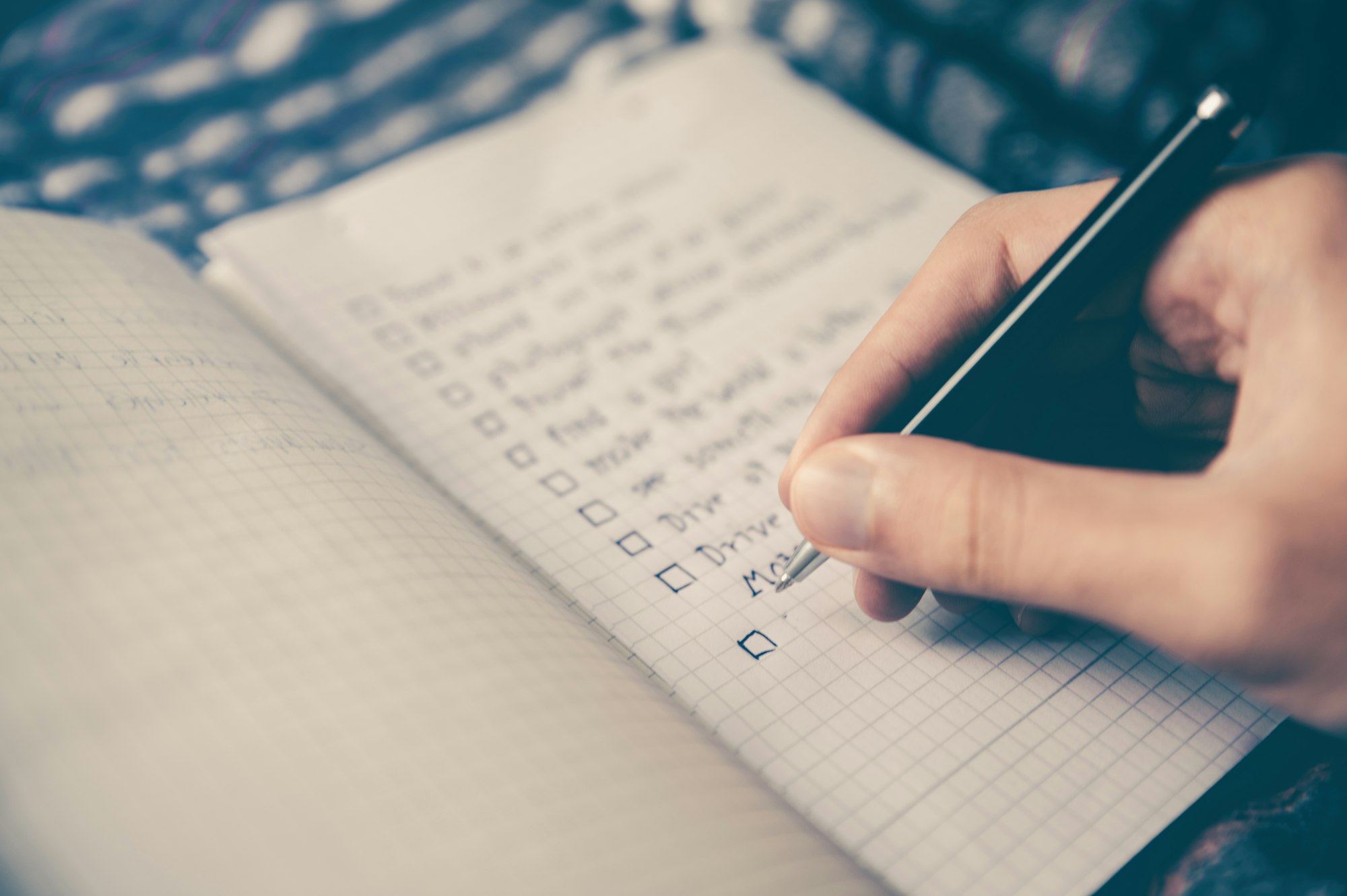
What's Next?
While this is already a long list of changes, these are the things that I plan on implementing next.
- Plastic-free cleaners: Something that's been on my mind for a while, but I haven't gotten around to it yet. These often come in a glass bottle and the refills are concentrates that you can mix with water at home. The leader for me is currently Blueland, but I haven't used any yet so I can't report back on the quality.
- Bidet: Reflecting on where most of my current waste comes from, it's probably toilet paper. Switching to a bidet will drastically reduce this. I'm likely going to get a Tushy one (not just for the good name), but again, I can't report on the quality until I do. If you also wanna make this move, here's 10% off.
- Reusable coffee mug: I sit and work at cafés a lot (in fact, I'm sitting in one right now as I'm writing this). For some reason, even if I'm staying, coffee and tea are usually served to me in a disposable cup. Switching to a reusable one and bringing it in with me won't work everywhere, but where it does I can eliminate the need for an extra piece of trash.
- Misfits market: Ugly produce doesn't get sold. Think about it, when you're at the grocery store, you choose the best-looking apple every time. But the wonky-looking ones taste just as great. Misfits Market (now combined with Imperfect Foods) captures produce before it's wasted and sends it right to your door, for up to 40% off. I plan on ordering a box soon to try it out. Here's $10 off for you to do the same.
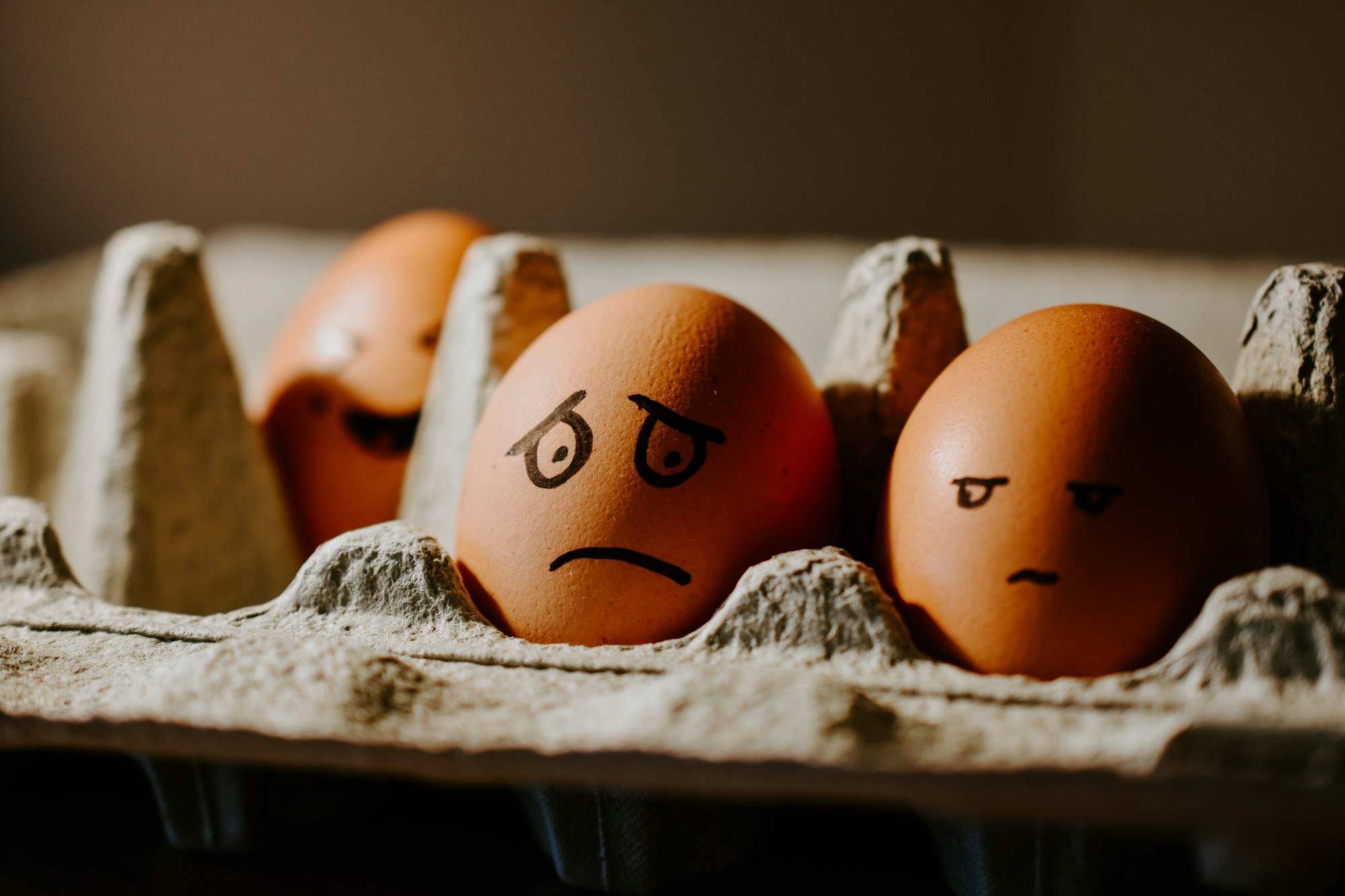
Did I Try and Ditch Anything?
They can't all be winners. Here are a few things I tried out but don't still use today.
- Reusable tissues: Back in the day, everyone used a handkerchief instead of Kleenex, right? And while a pack of reusable tissues from Last Object do the trick for my runny nose just fine, I struggled to have them around, use them, then wash them quickly enough. That said, it's more of a cultural shift than a product problem. Maybe I'll give these another go...
- Solid shampoo: As a child, I had very thick, flowy hair. Now I have thick, flowy hair with a nice receding hairline. But when I tried solid shampoo, it left my head extra dry and flaky, flashing me back to my middle school dandruff-filled days. I tried several different solid shampoos and none of them worked for my hair, but I've heard great things from others!
- Reusable paper towels: These are microfiber towels, but worse. They look like paper towels which is fun, but they absorb less and have to be washed more than other towels. Microfiber or even normal hand towels are a better way to go.
Am I perfectly zero-waste and environmentally friendly? Far from it, but I adopted all of these sustainable lifestyle practices over the past year that are better for the Earth, better for myself, and better for my wallet (in the long run).
What am I missing?
A few links are affiliates, and when you purchase from them, you help Climativity continue to exist at no extra cost to you (often even less cost through a discount!). Thanks for your support and planet-friendly choices.
P.S. a lot of you have sent me these because you use/do them yourselves, or thought I would like them. In fact, I almost surely forget where many of these came from. If that was you, thank you, and please send any more cool ways to be sustainable my way!
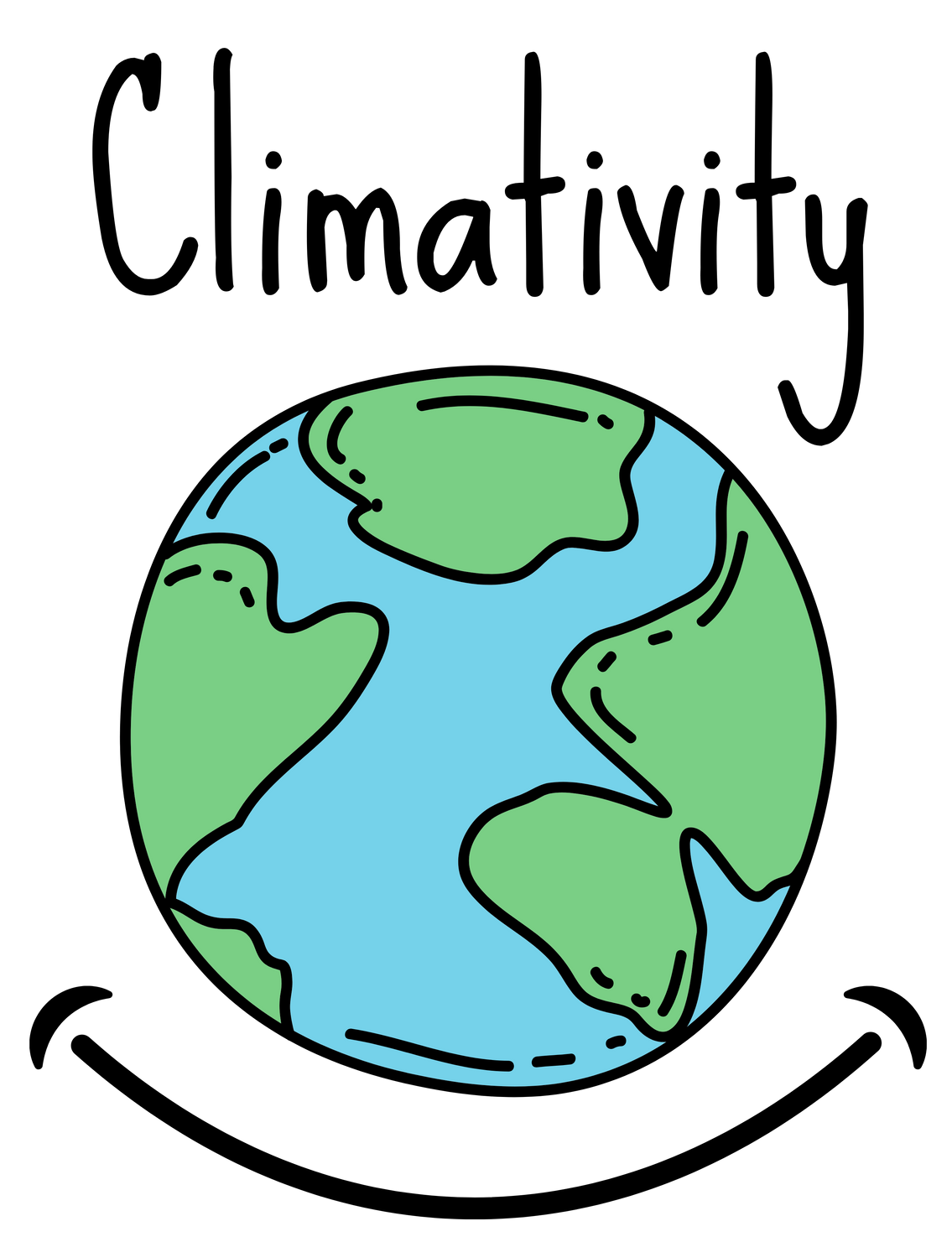

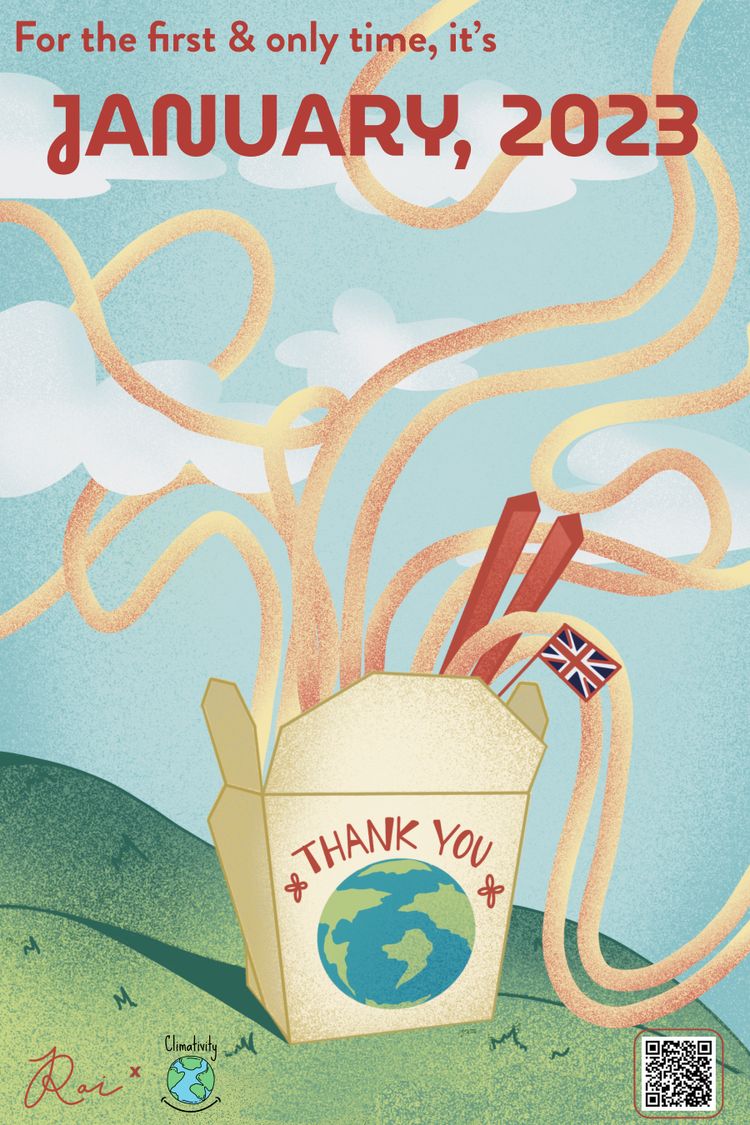



Member discussion